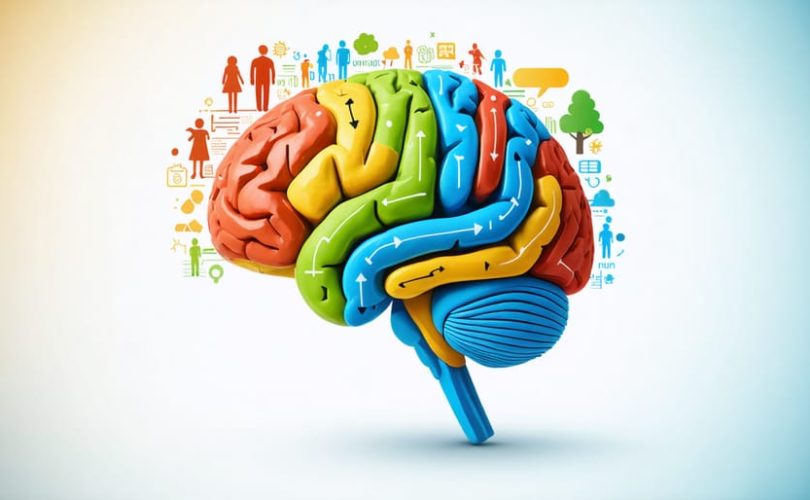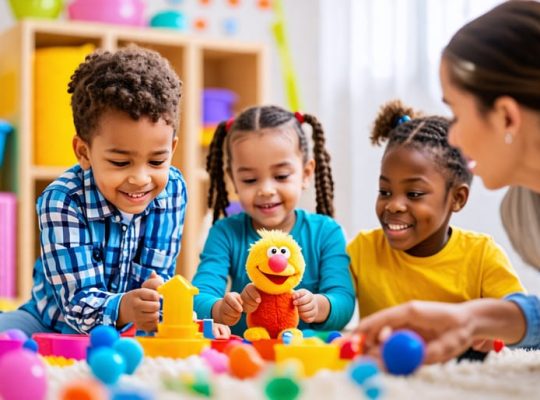The Psychology Behind Role Play: More Than Just Pretend
How the Brain Processes Role Play
When children engage in role play, their brains activate multiple cognitive networks simultaneously. Research shows that the role of play in child development involves complex neural processes, particularly in the prefrontal cortex, which manages executive functions like planning and decision-making.
During role play activities, children’s brains create new neural pathways as they imagine different scenarios and practice social interactions. The hippocampus, responsible for memory formation, works alongside the amygdala, which processes emotions, helping children understand and remember social cues and appropriate responses.
Dr. Sarah Thompson, a child development specialist, explains, “When a child pretends to be a doctor or teacher, their brain is literally rewiring itself, strengthening connections that support empathy, problem-solving, and emotional regulation.” This cognitive exercise helps develop crucial life skills while feeling safe and enjoyable for the child.
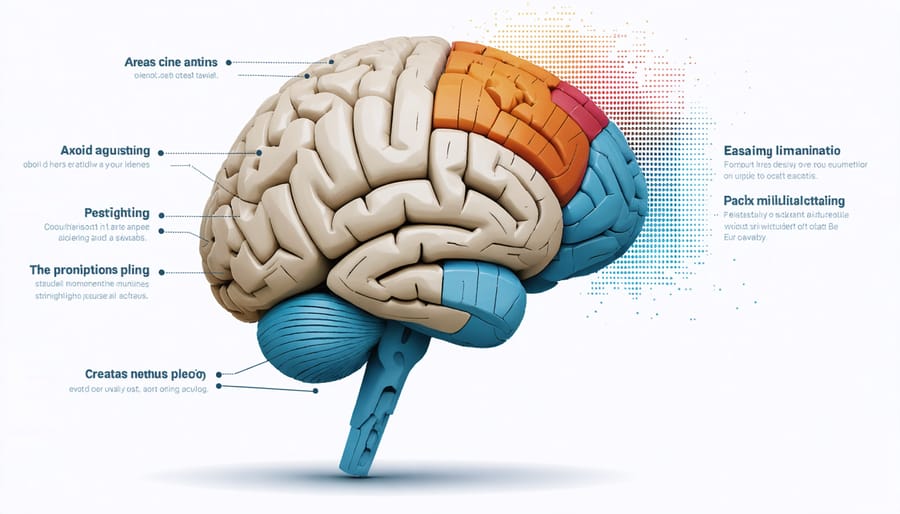
Role Play’s Impact on Social-Emotional Learning
Role play serves as a powerful tool for developing emotional intelligence and social skills in children and adults alike. Through pretend scenarios, individuals learn to recognize and respond to different emotional states, practice empathy, and develop better understanding of others’ perspectives.
Dr. Sarah Chen, a child psychologist, notes: “When children engage in role play, they’re actually rehearsing real-life emotional situations in a safe environment. This helps them build confidence in handling similar situations in real life.”
Role play activities help develop crucial social-emotional skills including:
– Understanding and managing emotions
– Building empathy and compassion
– Developing conflict resolution abilities
– Improving communication skills
– Strengthening self-awareness
Consider a child playing “doctor” with their stuffed animals. They’re not just mimicking actions; they’re learning to show care, practice patience, and understand others’ feelings. This emotional learning through play creates lasting neural pathways that support healthy social development and emotional regulation throughout life.
Through guided role play exercises, individuals can explore complex emotions and social situations while receiving supportive feedback and guidance.
Types of Role Play in Child Psychology
Therapeutic Role Play
In therapeutic settings, mental health professionals skillfully use role play as a powerful tool to help clients work through various emotional and behavioral challenges. During play therapy sessions, therapists create safe spaces where children and adults can act out difficult situations they’ve experienced or anticipate facing.
Dr. Sarah Martinez, a child psychologist with over 15 years of experience, shares, “Role play allows clients to practice new behaviors and responses in a judgment-free environment. It’s like having a dress rehearsal for real-life situations.”
Therapists might guide clients through scenarios such as managing anxiety-provoking social situations, practicing assertiveness, or working through family conflicts. For children especially, this approach feels natural and non-threatening, allowing them to express feelings they might struggle to put into words.
Through therapeutic role play, clients can develop new coping strategies, build confidence, and gain valuable insights into their emotions and behaviors. The therapist provides gentle guidance and feedback, helping clients refine their responses and develop more effective communication skills.
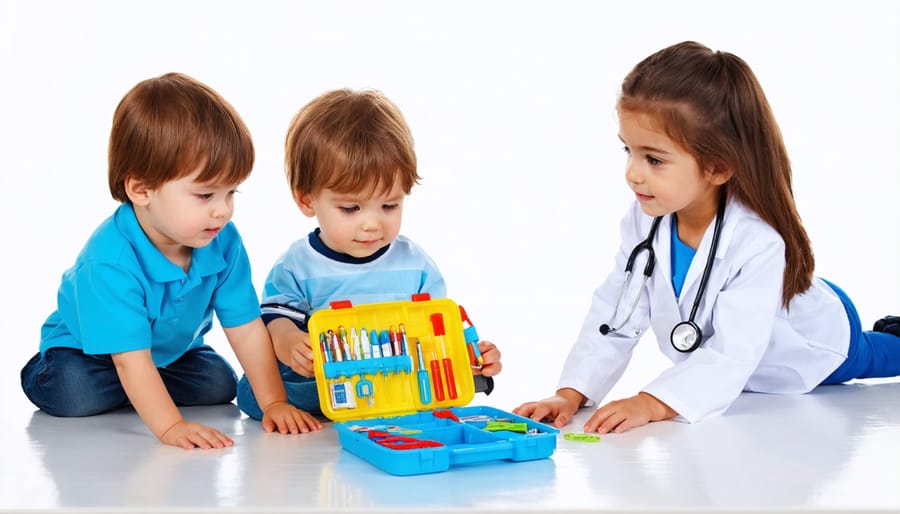
Social Skills Development Role Play
Role play serves as a powerful tool for developing essential social skills in both children and adults. Through structured scenarios, individuals can practice and refine their interpersonal abilities in a safe, supportive environment. For example, children might act out common social situations like sharing toys or resolving playground conflicts, helping them develop empathy and problem-solving skills.
Dr. Sarah Chen, a child psychologist, notes that “role play allows children to experiment with different social responses and learn from immediate feedback without real-world consequences.” This practice can be particularly beneficial for those who struggle with social anxiety or have difficulty reading social cues.
Common social skills role play exercises include practicing conversations, handling disagreements, expressing emotions appropriately, and developing active listening skills. Parents and educators can create scenarios that mirror real-life situations their children might encounter, such as making new friends at school or working in group projects.
The beauty of social skills role play lies in its flexibility and adaptability. Sessions can be adjusted based on individual needs and progress, making it an invaluable tool for building social competence at any age or skill level.
Role Play at Different Developmental Stages
Toddlers and Preschoolers (2-5 years)
During the toddler and preschool years, role play becomes increasingly sophisticated and meaningful. Children at this age begin to engage in more complex pretend scenarios, often mimicking the adults in their lives through activities like “playing house,” “doctor’s office,” or “school.” This type of imaginative play serves as a crucial tool for emotional and social development.
Dr. Sarah Thompson, a child development specialist, notes that “when children pretend to be different characters, they’re actually practicing important life skills and processing their daily experiences.” Through role play, toddlers learn to take turns, share resources, and understand different perspectives – fundamental building blocks for empathy and social awareness.
Parents often observe their preschoolers creating elaborate scenarios with toys or friends, which helps them make sense of the world around them. For example, a child might process a recent doctor’s visit by pretending to give their teddy bear a checkup. This natural form of play therapy allows children to work through fears, understand social roles, and develop problem-solving skills in a safe, controlled environment.
Research shows that children who engage in regular role play during these formative years often demonstrate stronger language skills, better emotional regulation, and more advanced social abilities compared to their peers.
School-Age Children (6-12 years)
During the school-age years, role play becomes more sophisticated and serves as a powerful tool for developing complex social skills and emotional intelligence. Children at this age engage in elaborate scenarios that often mirror real-world situations, from playing school to creating imaginary businesses or solving community problems.
These advanced role-playing activities help children practice perspective-taking and problem-solving in safe, controlled environments. For example, a child playing a teacher must consider how to explain concepts clearly and manage a classroom, building empathy and leadership skills in the process.
Dr. Sarah Chen, a child psychologist, notes: “School-age role play is crucial for developing conflict resolution skills and understanding social dynamics. When children act out different roles, they’re actually rehearsing for real-life situations.”
Role play at this age also supports academic learning. Children might act out historical events, practice different languages, or explore scientific concepts through pretend play. This experiential learning approach helps cement knowledge while making education more engaging and memorable.
Parents and teachers can facilitate meaningful role play by providing props, suggesting scenarios, and participating when invited, while allowing children to lead and direct their own experiences.
Supporting Healthy Role Play at Home
Creating a Role Play-Friendly Environment
Creating a supportive environment for role play is essential for its therapeutic and developmental benefits. Start by designating a specific area that feels safe and comfortable, whether it’s a corner of a classroom, a quiet space at home, or a therapy room. This space should be free from distractions and allow children to fully immerse themselves in their roles.
Stock the area with versatile props and materials that spark imagination. Simple items like scarves, hats, empty boxes, and dress-up clothes can transform into countless possibilities. Include everyday objects that children recognize from their real-world experiences, as these help them practice and process daily situations through creative approaches to mental health.
Consider including a mirror for self-expression and emotional awareness, comfortable seating or cushions, and storage solutions that keep materials organized yet accessible. The space should be flexible enough to accommodate both individual and group role play activities. Remember to regularly rotate materials to maintain interest and introduce new scenarios for exploration.
Most importantly, create an atmosphere where children feel emotionally safe to express themselves freely without judgment. This might mean establishing simple ground rules about respect and personal boundaries while maintaining a warm, encouraging presence.
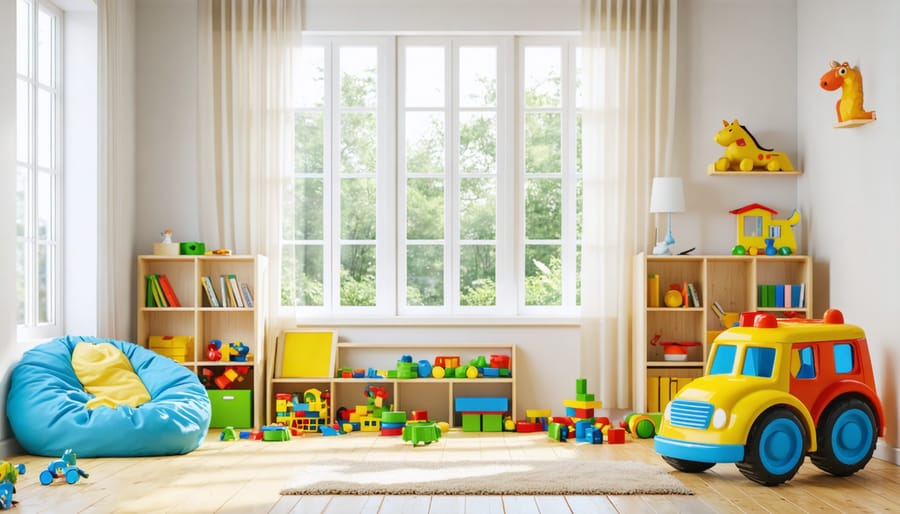
When to Seek Professional Support
Role play therapy can be particularly beneficial when certain signs or behaviors emerge in children or adults. If you notice your child struggling with social interactions, expressing emotions, or adapting to new situations, role play therapy might be helpful. This is especially true after significant life changes like divorce, moving homes, or starting a new school.
Look for signs such as increased anxiety, difficulty making friends, aggressive behavior, or withdrawal from social situations. Children who have experienced trauma, bullying, or loss may also benefit greatly from role play interventions. Additionally, if you observe your child having trouble with emotional regulation or showing resistance to change, professional support through role play therapy could provide valuable coping strategies.
For adults, consider seeking role play therapy when facing challenges in professional relationships, communication difficulties, or social anxiety. This approach can be particularly effective when traditional talk therapy hasn’t provided desired results. Remember, early intervention often leads to better outcomes, so don’t hesitate to consult a mental health professional if you’re unsure whether role play therapy would be beneficial for you or your child.
Role play is a powerful tool that offers tremendous benefits for child development, mental health, and personal growth. As we’ve explored throughout this article, it serves as more than just play – it’s a fundamental way children learn about themselves, others, and the world around them.
Remember that your involvement as a parent or caregiver is invaluable in supporting role play activities. By actively participating and encouraging different scenarios, you help create a safe space for your child to explore emotions, practice social skills, and develop critical thinking abilities. Whether it’s pretending to run a restaurant, caring for stuffed animals, or acting out favorite stories, each moment of role play contributes to your child’s psychological development.
Don’t feel pressured to create elaborate setups or buy expensive props. Simple, everyday items and your engaged presence are all that’s needed to make role play meaningful. Pay attention to your child’s interests and follow their lead while gently introducing new elements to expand their experiences.
If you notice your child struggling with certain situations or emotions during role play, consider it an opportunity for discussion and growth. Remember that professional guidance is always available if you need support in understanding or facilitating role play activities.
By embracing role play as a developmental tool, you’re giving your child essential building blocks for emotional intelligence, social competence, and creative problem-solving. Your support and involvement make all the difference in maximizing these valuable learning opportunities.

